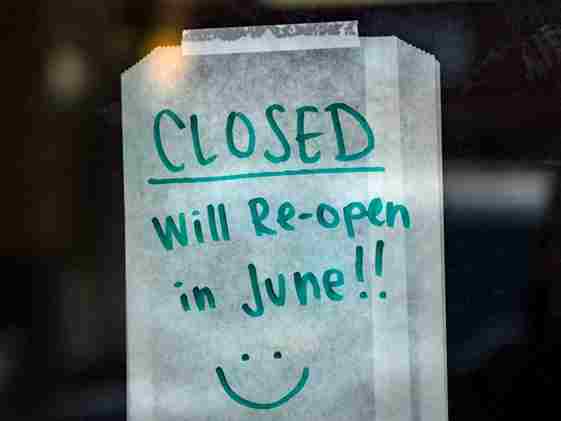Perhaps not surprisingly, I’ve been deluged recently with enquiries from small business operators and commercial space landlords about rental relief in the time of COVID-19. For those affected, here’s a quick snapshot of what’s on offer.
The right to rental relief on commercial leases is dealt with in a Federal Government mandatory code of conduct (a.k.a. “the Code”) agreed by the National Cabinet on 3 April 2020. Although the Queensland Government has not yet passed regulations under that Code, when it does its regulations will mirror the Code’s requirements and apply them from the 3 April approval date. In the meantime, tenants and landlords are being encouraged to voluntarily strike agreements in line with the Code’s principles.
In short, under the Code a commercial leaseholder is entitled to relief if their business and turnover are negatively impacted during the COVID-19 “lockdown,” from the time they are first required to close their business, until such time as they are legally able to operate at 100% effectiveness. If the business fits the Commonwealth Government’s JobKeeper program (irrespective of whether or not it applied under that program), has a turnover of less than $50 million per year, and its turnover has been negatively impacted by at least 30%, the relief provisions of the Code will apply. The commercial leaseholder’s entitlements will include rental relief in the form of combined waivers and/or deferrals of up to 100% of the current rental, based on the actual reduction to the business’s turnover. Similar relief applies to outgoings payable under the lease during the period of lockdown. The landlord must not seek to resort to a rental guarantee or bond (including a bank guarantee) during the disruption period, and the lease cannot be terminated for non-payment of the unadjusted rent during the period of business disruption, even if the fixed term ends during that period.
The degree of rental relief is calculated by reference to turnover. For example, if a commercial leaseholder’s turnover is disrupted by 50%, reasonably demonstrated by comparison with turnover figures pre and post the disruption period, then the business owner can seek a corresponding reduction in rental. That is, at least one-half must be fully waived and is unrecoverable by the landlord, even after the end of the disruption period, and the remaining portion is deferred and must be amortised and repaid to the landlord over the balance of the lease term or 24 months after the end of the disruption period, whichever is greater. Assuming a 50:50 split of waiver to deferral, it is anticipated the amortised deferred repayments will be added to monthly rental payments after the rental situation returns to normal at the end of the disruption period. Similar principles apply to the adjustment of outgoings and a proportionate reduction in taxes and costs of services procured by the landlord.
The federal Code assumes landlords and tenants will negotiate commercially, in good faith, in applying its principles. But if mutual agreement can’t be achieved, the parties must submit to a binding mediation by a mediator appointed by the relevant State Consumer Affairs body. In Queensland, this will be the Office of Fair Trading.
Meanwhile, the Queensland Government has agreed to assist affected landlords of commercial premises by waiving land tax on eligible premises for up to three months. However, the agreement between landlord and tenant for rent relief in accordance with the Code principles must provide for State government land tax reductions to be passed on to tenants who are otherwise liable to reimburse the landlord for land tax under their lease.
So that’s it in a nutshell. Turning around the financial fallout of COVID-19 will no doubt take patience and plenty of sacrifice from all parties. Fortunately, as our business community has shown time and again, we’re more than up for the challenge.













